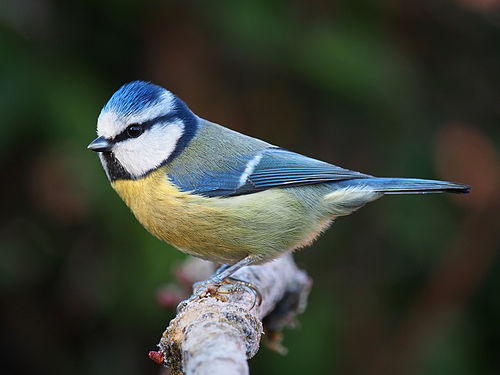Speciesnoun
Type or kind. race.}}
Speciesnoun
A group of plants or animals having similar appearance.
Speciesnoun
(taxonomy) A rank in the classification of organisms, below genus and above subspecies; a taxon at that rank.
Speciesnoun
(mineralogy) A mineral with a unique chemical formula whose crystals belong to a unique crystallographic system.
Speciesnoun
An image, an appearance, a spectacle.
Speciesnoun
(obsolete) The image of something cast on a surface, or reflected from a surface, or refracted through a lens or telescope; a reflection.
Speciesnoun
Visible or perceptible presentation; appearance; something perceived.
Speciesnoun
A public spectacle or exhibition.
Speciesnoun
(Christianity) Either of the two elements of the Eucharist after they have been consecrated.
Speciesnoun
Coin, or coined silver, gold, or other metal, used as a circulating medium; specie.
Speciesnoun
A component part of compound medicine; a simple.
Speciesnoun
An officinal mixture or compound powder of any kind; especially, one used for making an aromatic tea or tisane; a tea mixture.
Species
Visible or sensible presentation; appearance; a sensible percept received by the imagination; an image.
Species
A group of individuals agreeing in common attributes, and designated by a common name; a conception subordinated to another conception, called a genus, or generic conception, from which it differs in containing or comprehending more attributes, and extending to fewer individuals. Thus, man is a species, under animal as a genus; and man, in its turn, may be regarded as a genus with respect to European, American, or the like, as species.
Species
In science, a more or less permanent group of existing things or beings, associated according to attributes, or properties determined by scientific observation.
Species
A sort; a kind; a variety; as, a species of low cunning; a species of generosity; a species of cloth.
Species
Coin, or coined silver, gold, or other metal, used as a circulating medium; specie.
Species
A public spectacle or exhibition.
Species
A component part of a compound medicine; a simple.
Species
The form or shape given to materials; fashion or shape; form; figure.
Speciesnoun
(biology) taxonomic group whose members can interbreed
Speciesnoun
a specific kind of something;
Speciesnoun
a group of living organisms consisting of similar individuals capable of exchanging genes or interbreeding. The species is the principal natural taxonomic unit, ranking below a genus and denoted by a Latin binomial, e.g. Homo sapiens.
Speciesnoun
a group subordinate to a genus and containing individuals agreeing in some common attributes and called by a common name.
Speciesnoun
a kind or sort
Speciesnoun
used humorously to refer to people who share a characteristic or occupation
Speciesnoun
a particular kind of atom, molecule, ion, or particle
Speciesnoun
the visible form of each of the elements of consecrated bread and wine in the Eucharist.
Species
In biology, a species is the basic unit of classification and a taxonomic rank of an organism, as well as a unit of biodiversity. A species is often defined as the largest group of organisms in which any two individuals of the appropriate sexes or mating types can produce fertile offspring, typically by sexual reproduction.
Strainnoun
(obsolete) Treasure.
Strainnoun
(obsolete) The blood-vessel in the yolk of an egg.
Strainnoun
(archaic) Race; lineage, pedigree.
Strainnoun
Hereditary character, quality, or disposition.
Strainnoun
A tendency or disposition.
Strainnoun
(literary) Any sustained note or movement; a song; a distinct portion of an ode or other poem; also, the pervading note, or burden, of a song, poem, oration, book, etc.; theme; motive; manner; style
Strainnoun
(biology) A particular breed or race of animal, microbe etc.
Strainnoun
(music) A portion of music divided off by a double bar; a complete musical period or sentence; a movement, or any rounded subdivision of a movement.
Strainnoun
(rare) A kind or sort (of person etc.).
Strainnoun
The act of straining, or the state of being strained.
Strainnoun
A violent effort; an excessive and hurtful exertion or tension, as of the muscles.
Strainnoun
An injury resulting from violent effort; a sprain.
Strainnoun
A dimensionless measure of object deformation either referring to engineering strain or true strain.
Strainnoun
(obsolete) The track of a deer.
Strainverb
(obsolete) To beget, generate (of light), engender, copulate (both of animals and humans), lie with, be born, come into the world.
Strainverb
(obsolete) To hold tightly, to clasp.
Strainverb
To apply a force or forces to by stretching out.
Strainverb
To damage by drawing, stretching, or the exertion of force.
Strainverb
To act upon, in any way, so as to cause change of form or volume, as when bending a beam.
Strainverb
To exert or struggle (to do something), especially to stretch (one's senses, faculties etc.) beyond what is normal or comfortable.
Strainverb
To stretch beyond its proper limit; to do violence to, in terms of intent or meaning.
Strainverb
(transitive) To separate solid from liquid by passing through a strainer or colander
Strainverb
(intransitive) To percolate; to be filtered.
Strainverb
To make uneasy or unnatural; to produce with apparent effort; to force; to constrain.
Strainverb
To urge with importunity; to press.
Strainnoun
Race; stock; generation; descent; family.
Strainnoun
Hereditary character, quality, or disposition.
Strainnoun
Rank; a sort.
Strainnoun
A cultural subvariety that is only slightly differentiated.
Strainnoun
The act of straining, or the state of being strained.
Strainnoun
A violent effort; an excessive and hurtful exertion or tension, as of the muscles; as, he lifted the weight with a strain; the strain upon a ship's rigging in a gale; also, the hurt or injury resulting; a sprain.
Strainnoun
A portion of music divided off by a double bar; a complete musical period or sentence; a movement, or any rounded subdivision of a movement.
Strainnoun
A change of form or dimensions of a solid or liquid mass, produced by a stress.
Strainnoun
Any sustained note or movement; a song; a distinct portion of an ode or other poem; also, the pervading note, or burden, of a song, poem, oration, book, etc.; theme; motive; manner; style; also, a course of action or conduct; as, he spoke in a noble strain; there was a strain of woe in his story; a strain of trickery appears in his career.
Strainnoun
Turn; tendency; inborn disposition. Cf. 1st Strain.
Strainverb
To draw with force; to extend with great effort; to stretch; as, to strain a rope; to strain the shrouds of a ship; to strain the cords of a musical instrument.
Strainverb
To act upon, in any way, so as to cause change of form or volume, as forces on a beam to bend it.
Strainverb
To exert to the utmost; to ply vigorously.
Strainverb
To stretch beyond its proper limit; to do violence to, in the matter of intent or meaning; as, to strain the law in order to convict an accused person.
Strainverb
To injure by drawing, stretching, or the exertion of force; as, the gale strained the timbers of the ship.
Strainverb
To injure in the muscles or joints by causing to make too strong an effort; to harm by overexertion; to sprain; as, to strain a horse by overloading; to strain the wrist; to strain a muscle.
Strainverb
To squeeze; to press closely.
Strainverb
To make uneasy or unnatural; to produce with apparent effort; to force; to constrain.
Strainverb
To urge with importunity; to press; as, to strain a petition or invitation.
Strainverb
To press, or cause to pass, through a strainer, as through a screen, a cloth, or some porous substance; to purify, or separate from extraneous or solid matter, by filtration; to filter; as, to strain milk through cloth.
Strainverb
To make violent efforts.
Strainverb
To percolate; to be filtered; as, water straining through a sandy soil.
Strainnoun
(physics) deformation of a physical body under the action of applied forces
Strainnoun
difficulty that causes worry or emotional tension;
Strainnoun
a succession of notes forming a distinctive sequence;
Strainnoun
(psychology) nervousness resulting from mental stress;
Strainnoun
a special variety of domesticated animals within a species;
Strainnoun
(biology) a group of organisms within a species that differ in trivial ways from similar groups;
Strainnoun
a lineage or race of people
Strainnoun
injury to a muscle (often caused by overuse); results in swelling and pain
Strainnoun
pervading note of an utterance;
Strainnoun
an effortful attempt to attain a goal
Strainnoun
an intense or violent exertion
Strainnoun
the act of singing;
Strainverb
to exert much effort or energy;
Strainverb
test the limits of;
Strainverb
use to the utmost; exert vigorously or to full capacity;
Strainverb
separate by passing through a sieve or other straining device to separate out coarser elements;
Strainverb
make tense and uneasy or nervous or anxious;
Strainverb
stretch or force to the limit;
Strainverb
remove by passing through a filter;
Strainverb
rub through a strainer or process in an electric blender;
Strainverb
alter the shape of (something) by stress;


















